
This interview is part of our interview series, where we curate stories of regular people that decided to design a life they love. (click here to learn more).
Wendy from WanderlustWendy.com
Some links to the products mentioned below are affiliate links, meaning that if you click and make a purchase, Nomad Numbers may receive a commission at no additional cost to you. For more information please review our disclaimer page.
We stumbled upon Wendy through our Instagram account as we were looking to find like minded travelers on the interweb and realized that she embarked on nomadic travel at the same time than we did. I was quite excited when Wendy accepted to be part of our interview series to share her nomadic story.
Wendy is a Taiwanese-American living in her 6th country (so far!). Besides Taiwan and the US, where she spent 12 and 11 years, respectively, Wendy also lived 2 years in Cameroon, 2 years in the UK, 6 years in China and now Vietnam. Each place has definitely had a significant impact on the person she has become.
Wendy originally moved to Shanghai to leverage relatively low living costs and fast economic growth to pay off debt. She found herself in the corporate grind for nearly five years and picked up a husband/fantastic travel partner along the way.
Together they bid farewell to their “regular” lives in June 2018 and spent one year living their full-time travel dream. They visited 20 countries on this journey and learned a lot about themselves, the most significant learning was that perpetual nomadic life wasn’t for them.
Wendy took the plunge to step off of the corporate grind when she realizes the one more year syndrome was too easy to repeat. When her husband’s new job offer came in lower than expected, they took this as a sign to seize the moment and try out full-time travel. From their year, they learned that financial freedom doesn’t need to mean never working again.
Let’s hear from Wendy!

Lifestyle change
What does a typical day in your life look like for you today? And how does it differ from your lifestyle before?
Wendy: These days in Saigon, a typical day in my life begins without an alarm. I prioritize sleep and let my body wake up when it is ready. Though I keep a fairly regular schedule, sleeping around 11pm and waking up around 7am. I make coffee, drink it out of a mug in peace, while writing in my Bullet Journal. Then I spend the morning working on writing projects either at home, or at a co-working space. If at home, then I try to switch things up by heading to a café in the afternoon. Sometimes I meet up with friends or fit in a workout.
My rhythm today is quite the opposite of the corporate grind in Shanghai. Back then, I used to stay up late to cherish time away from the office but then scramble in the morning, grabbing a coffee on the go to be in my office for 8am conference calls. Then it’s usually a flurry of meetings, emails, and a few hours of actual work before leaving the office between 6 or 7pm. In the evenings, I try to fit in fitness, social activities, alone time to read and write, or simply shutting my mind off with mindless TV all within a few short hours.
You daily agenda seems to have drastically changed since you step away from your 9-5. What would you say is now the key factor driving the choice you are making daily? How has this change from before?
Check out the infographic below to contrast how Wendy’s priorities have changed before and after their nomadic shift.

What led you to decide to change your lifestyle?
Wendy: I moved to Shanghai to pay off my student debt. Thanks to geo-arbitrage and the relatively low cost of living in Shanghai at the time, I achieved this goal and saved a great deal. Full-time travel had always been a dream. My husband was on board. We were on the train toward financial independence, but decided to take a detour to travel first before we have kids. I believe full-time travel is also possible with children. Still, I wanted to have the experience pre-kids to have a baseline comparison for later.
We traveled full-time for a year, but missed having a community. My husband took a job in Vietnam, where the cost of living is low enough that we both don’t need to work, and I’m taking the time to work on my blog. We aren’t financially independent yet, but the savings that we had built up from our time in Shanghai allows us the current flexibility.
Wendy: When I was in the corporate grind, vacations were precious, and never felt long enough. I was dreaming of full-time travel where I could leisurely see my way through the world.
A year of full-time travel later, I learned that the world really is that massive, and it still didn’t feel long enough. The difference is, the novelty of travel wears off, and visiting new places became another routine. Certainly a more interesting one than the office grind, but a routine nevertheless.
We also dreamed about alternative style of living, and used to binge watch YouTube videos of people living off-grid, in a tiny house, etc. During our travel, we switched up the travel routine by experimenting off-grid living with a farm in Uruguay. Our three-week stay opened my mind in a significant way. The perspective to see how people live and thrive without the 9-5 is so valuable. https://wanderlustwendy.com/uruguay-workaway/
What lifestyle adjustment(s) did you have to make? What were some of the biggest challenges to adjust?
Wendy: Shifting our mindset to live more minimally was a crucial step. It took us over a year to minimize our belongings to one suitcase and one backpack per person. But along the way, we learned a lot about ourselves and what is important – experiences over things. Yet, at the same time, we aren’t willing to live with extreme frugality. Learning to find the right balance is a constant adjustment.
As you’ve been spending more time together while traveling, were there any challenges with spending 24/7 with your spouse? Was there any adjustment you made to your schedule to keep a healthy balance.
Wendy: Xavier and I travel very well together, and this was an important quality I had looked for in a partner. Being together 24/7 was a fantastic stress test on our first year of marriage. We joke that we’ve spent more time together than most of our married couple friends who have been together longer, but live the 9-5 life.
We had structured our year around visiting friends and family, so we do work in some time apart to get quality time alone with people we are visiting.
Other than that, we honestly didn’t have much time apart, other than during his morning runs (though I usually was still asleep!). All the time together forced us to resolve issues quickly when arguments arise. We learned to move on swiftly since we often only had each other.
In fact, we enjoy being together so much that we have to make a concerted effort to make new friends as we work on building a community in Saigon. It’s easy to want to fall back into the pattern with just the two of us. Balance is key!
What life philosophy has been guiding you through this journey?
Wendy: My life goal is to hopefully one day live to my 90s, and have collected a lot of stories to share. This goal guides decisions on living a healthy and meaningful life. This means abandoning being proud of functioning on little sleep and abdicating from the busy throne. I now prioritize sleep and strive to live slowly and intentionally.
What did your friends and family think of your plan to take on full-time travel? What did they think when you announced to them that you will be quitting your day to day job and leaving the US to travel/relocate?
Wendy: We weren’t sure of our own plans, and had a rough idea for six months of travels when we set off on our journey. We found that friends and families were sometimes more uncomfortable with our lack of plans beyond a short time horizon than we were.
But for the most part, people were very supportive, and often envious of our journey. The general consensus was that this was a unique opportunity, and we were courageous to take it.
Travel

How would you describe your travel style?
Wendy: My husband and I travel to test out where we may one day want to live for a longer term. With each destination, we tend to get the touristy stuff out of the way quickly, then as much as possible, get a feel of what living in that place may be like. We love doing very regular things like going grocery shopping, going for a run in the park, and identifying a favorite café to revisit throughout our stay
If you could never travel again and could pick any city to be confined to, where would you pick? And why?
Wendy: Tough question! I hope this scenario never actually materializes. Still, if push comes to shove, I would choose to be confined to Shanghai. This is where my husband and I met. I grew a great deal as a person here, and it’s a city that I’ve experienced with the highest rate of change. It’s a very comfortable place to live, and interesting enough to always find something to do.
How much stuff do you travel with?
Wendy: During our year of full-time travel, we traveled with a suitcase and a backpack each. Mine was a medium-sized suitcase (not quite carry-on-only minimal). Since we sold nearly everything to embark upon full-time travel, what we carried was 99% of our possessions.
What’s something you pack that’s not absolutely essential but you like having it?
Wendy: As a couple traveling, a portable speaker was a non-essential yet handy item. It entertained us on long train rides, evenings in at our Airbnb or hotel rooms.
Spending

How much money do you spend on travel per year? How many days of travel does this represent? How much does this represent per day and per person?
Wendy: For our year-long journey that covered 20 countries, we spent about $54 per person per day. We moved around quite a bit, and that reflects in the cost. Certainly, one could travel for much cheaper, but this was the level of expenses that fit our comfort level.
| 2018/2019 | Cost per day and per person | Days | Total cost per location |
| Trans-Siberian | $101 | 26 | $5,249 |
| France | $30 | 49 | $2,966 |
| US/Canada | $60 | 111 | $13,335 |
| South America | $53 | 87 | $9,290 |
| USA | $44 | 88 | $7,671 |
| Europe | $57 | 36 | $4,078 |
| Total | $54 | 397 | $42,590 |
Note: When it comes to tracking her expenses Wendy focus on mindful spending rather than categorizing every single expense. She does track her spending but keep things simple by only looking at what goes out of her checking account. This is called “anti-budget” and Wendy share more on this philosophy on her blog: http://wanderlustwendy.com/anti-budget/
How do you fund your travel (savings/work whilst travelling/other)?
Wendy: We saved up a year’s worth of our Shanghai living expenses in cash to embark upon our travel. We didn’t want the pressure of making money while traveling since we weren’t sure how we would like this lifestyle, and that turned out to be a wise decision. The fund was in cash, because we also didn’t want to worry about market conditions. That also turned out to be a good move, since the market was rather volatile in the winter of 2018.
Community
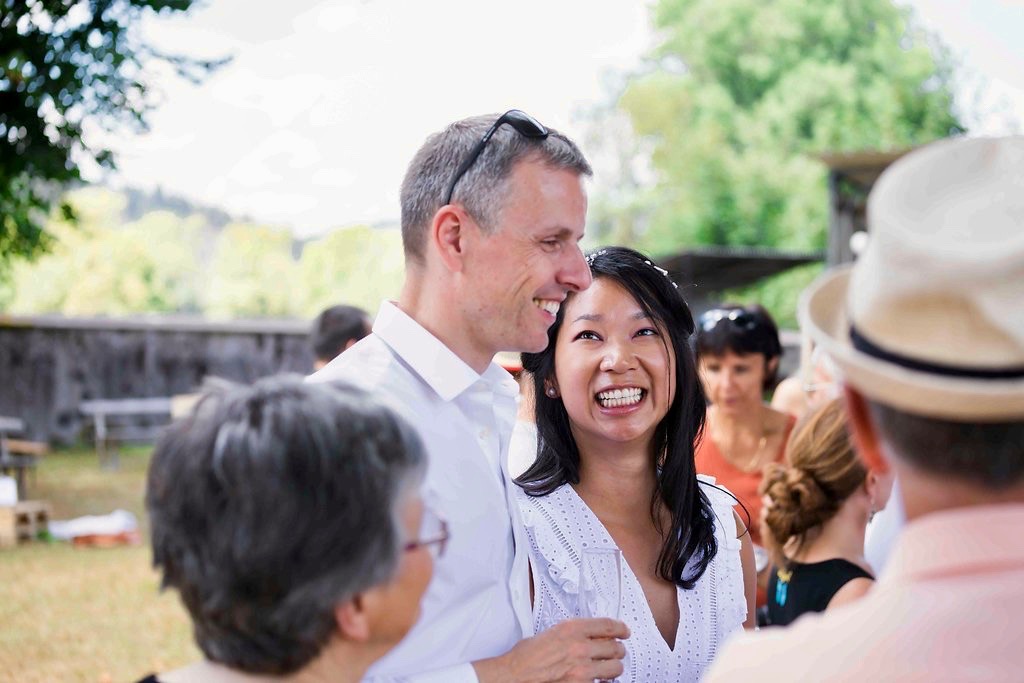
How do you meet people when you travel? Do you have any tips for people that are having challenges meeting people while traveling?
Wendy: We struggled a bit with this during our travels. We had some luck meeting people through Workaway projects, and staying at hostels. We also structured our trip around visiting friends and family around the world, so we didn’t have a shortage of people with whom to spend time. Nevertheless, these interactions felt rather transient, and that’s why we decided to stay put in place again.
How has community building evolved now that you decided to travel less?
Wendy: Moving to a new city requires a whole new level of community building, and it takes time. People mostly have established lives, and to slot ourselves into theirs requires persistence. Making friends is also a lot like dating – there has to be chemistry between people, conversations need to click, and all of this requires time and patience.
Last but not least
17. What is one resource (blog, podcast, book besides your own) you recommend for those that want to pursue your lifestyle?
Wendy: The Minimalist website, books, and blog. Changing mindset to set ourselves free is really the first step to this lifestyle, and they do a great job of addressing the mindset shift. I had stumbled upon their work years before we took the plunge, and it was a slow but steady journey that led to our lifestyle today.
18. What advice do you have for others who are considering this type of lifestyle?
Wendy: Nothing needs to last forever, but if you don’t try, then an idea remains an idea. We thought we may like to wander around the world forever, but it turns out we actually like staying put and have a community. We wouldn’t have known until we tried it, and I’m glad we test out ideas along the way.
19. Tell us one belief that is held up by society as ‘common sense’ but that you disagree with and why.
Wendy: The one idea I’ve always struggled with is that at some point, we must “settle down”. This is the norm for most, and while it works for many, I reject the notion that we need to eventually stay put in any one destination. While I’ve learned that perpetual travel isn’t my thing, I still thoroughly enjoy moving to a new country and making it my own. I foresee repeating this a few more times, and perhaps mixing it with future stints of full-time travel.
20. Is there anything I may not have asked that you would like to share with others who are considering this way of life?
Wendy: Stepping away from the traditional status quo takes courage. One way that I’ve gained confidence is to build a set of skills that allow me to make money. I worked in finance to pay off debt, but that’s also a profession that can always get me a job. I learned to code because I was curious about the backend of running a website, and that skill is also in demand.
Having a range of practical skills gave me the confidence to walk away and try out my passion. Worst case scenario, I can always get another job, and that’s not the worst thing in the world.
Rapid Fire Questions
| What is your favorite travel destination & why? | Wnedy: Not exactly a destination, but the Trans-Siberian Railway journey from Shanghai to Strasbourg. Slow travel is very underrated, and train travel is a wonderful way to see a place slowly. |
| What was the most creative thing you’ve ever done to save money during your travels? | Wendy: In true French fashion, we brought cheese and dry sausages on our train journeys to avoid eating cup noodles or pay for overpriced food from the dining cart. |
| What was your biggest travel mistake? | Wendy: Not a mistake, but I often wish we had planned more time in each destination. |
Thank you Wendy for sharing your story!
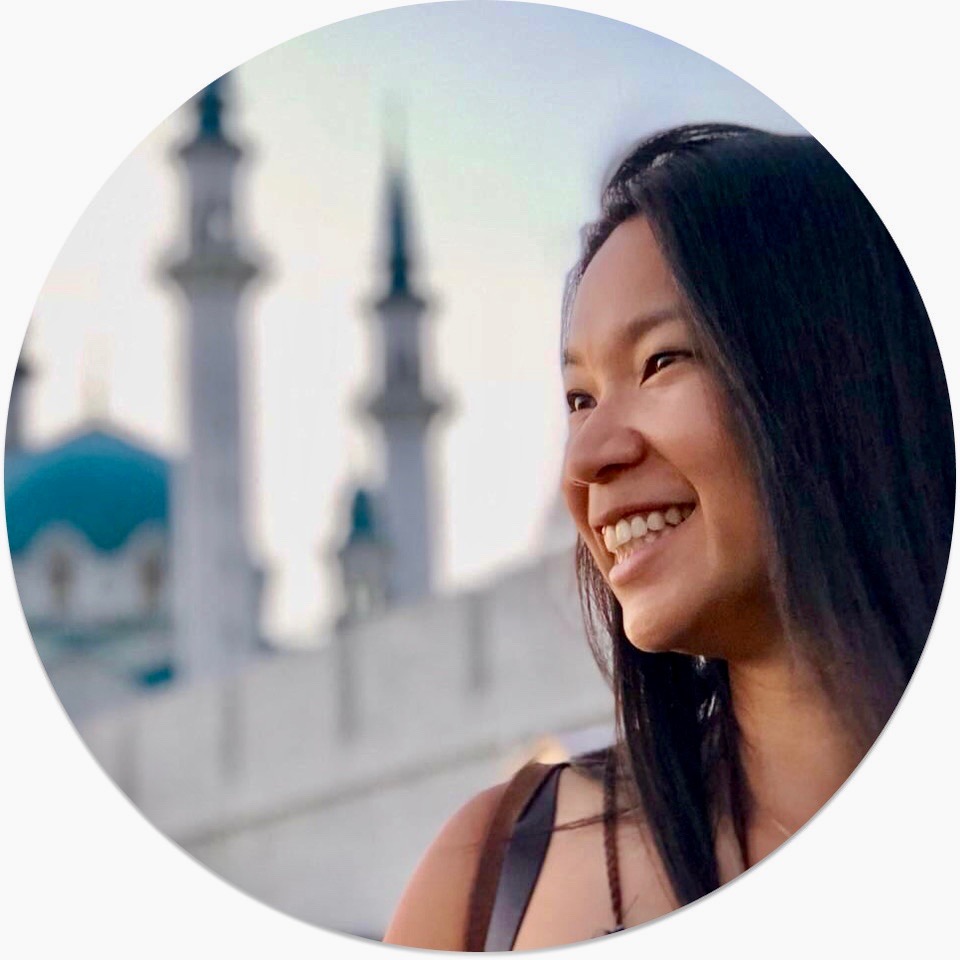
If you want to know more about Wendy, you can find her on the following platforms:
- Blog: wanderlustwendy.com
- Instagram: @wanderlustwlee
- Twitter: @wanderlustwlee
The Bottom Line
Here are the main lessons we took away from this interview:
- Lesson 1 – “Nothing needs to last forever, but if you don’t try, then an idea remains an idea” – We attended a meditation retreat in Thailand with some buddist monks who taught us that wisdom is the combination or learning and practice. You can learn as much as you want, if you don’t put your idea into practice then you will never grow in your life. In other words, practice makes perfect. Wendy was dreaming about full-time travel so she decided to take a year off with her husband to embrace it. Later they realized that this lifestyle wasn’t for them and they have changed their plan accordingly. If they would have waited years to execute on this idea they would have come with the same conclusion but at a probably higher cost since they might have loose precious time getting to this conclusion. Time they could have redirected doing something more productive.
- Lesson 2 – “Stepping away from the traditional status quo takes courage” – We believe that western society has a lot of social norms that ppl think they must conform to since everyone does, right? Well, it turns out that the truth is that nobody cares and as a consequence so many ppl end up stuck doing what we’ve been told to do rather not having the courage to embrace what will truly bring then real/internal happiness.
Wendy didn’t believe in such status quo when she decided to invest in herself and learn how to code. It wasn’t easy but by increasing or skill stacks, she has gained more control over her time. She has now more options of what she can do to trade money with and has also picked these new skills that will bring her closer to realizing her passions. - Lesson 3 – “Making friends is also a lot like dating – there has to be chemistry between people, conversations need to click, and all of this requires time and patience” – While nomadic travels has it’s pros and cons, community building has definitely been something that has challenged us as well. I like the idea that Wendy is taking by picking up a place to call home and settle there she will be able to create new roots that hopefully will come with new friendships and long lasting connections. Because when technology seems to bring people together, it can’t really replace real/physical human connections, can it?
Call to action
What do you think about this story? We would love to hear from you, so feel free to share your feedback by leaving a comment below.
Sometimes we need to hear about others making unconventional decisions before we can have the confidence to make our own. If you have (or are on a path to) an unconventional journey to improve your life that has a travel component to it and are interested to share it, please reach out to us as we would love to feature your story.
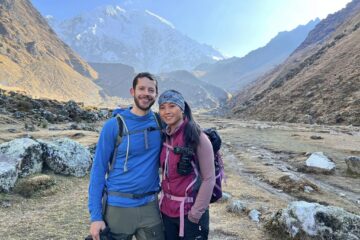
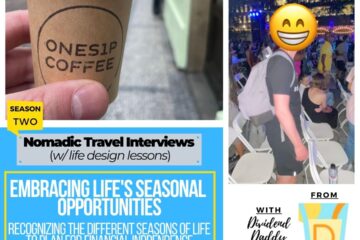
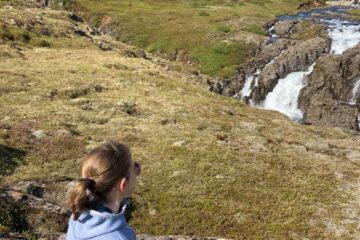
3 Comments
Skip · November 19, 2019 at 1:20 am
Hey,
Great interview.
I really appreciate the idea of travelling to find places you want to be for longer periods of time and build a sense of community. When my wife and I first started talking about financial independence and travel, the idea was to search out our own “utopia” and settle down eventually.
Initially, we thought we would be doing this across the U.S. However, my wife has been wanting to travel to southeast asia for some time. She was born in Vietnam, but came to the U.S. as a little girl with her family. She only remembers bits and pieces of her childhood in Vietnam. So, we started considering more international travel. Along the way, we discovered the concept of geoarbitrage and how powerful it can be in our quest for financial independence.
Now, our plan is sell everything and travel internationally in about 10-11 months. We will start in southeast asia for the reason mentioned above. We also want to take advantage of the low cost of living as a way to front load our retirement savings.
Our plan from the beginning was to go really slow. Ideally, at least several months in each place (Visa requirements, etc. permitting). We hope this will cost us less and we will experience less travel fatigue and get more immersed in the community/culture.
It is funny that Wendy mentions a portable speaker as a non essential that she likes to have. There are actually only three posessions that I think I will really miss when we start travelling… my guitars, my bicycle, and my Fender branded bluetooth speaker. I love that little speaker. It just sounds so great. It’s not huge, but it weights a lot for its size and I just can’t justify lugging it around.
Listen guys, I really appreciate this blog and other bloggers like Wendy who take the time to share their experiences, thoughts and knowledge. I also really appreciate the ability to link up with like minded travel people. Dare I say…. I think we are finding our tribe?
Wendy · November 20, 2019 at 9:55 am
Hi Skip! There is definitely quite a group of us out there. Glad to hear you’ll be off on the road soon! Do reach out if you are in Saigon. Vietnam is a great country for slow travel, and how great to also rediscover your wife’s cultural roots! Happy to share other tips and answer questions if you have them. -Wendy
-Wendy
What we learned from interviewing nomadic travelers - Nomad Numbers · May 16, 2020 at 7:39 am
[…] “The one idea I’ve always struggled with is that at some point, we must “settle down” – Wendy & Xavier […]